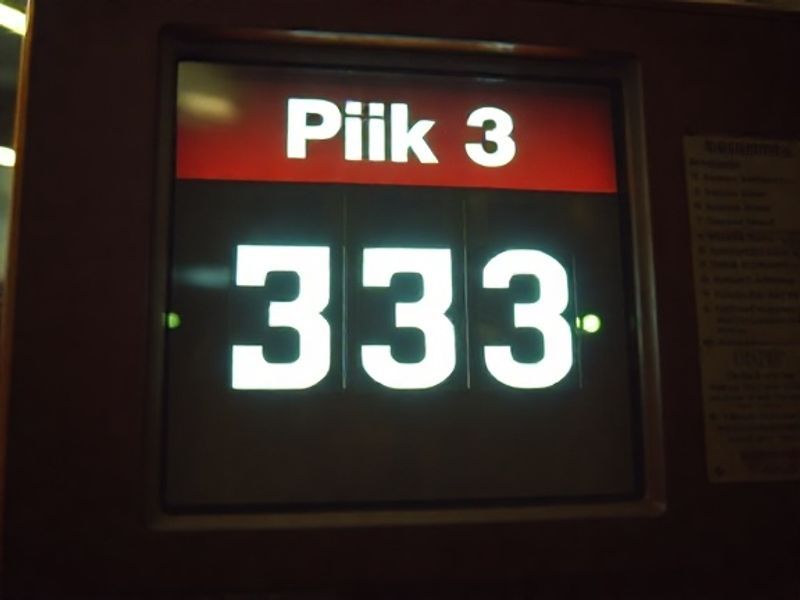Pick 3: How Three Tiny Numbers Conquered the World and Sold Hope by the Thimble
Pick 3: A Global Lottery in Miniature Where Hope Is Sold by the Thimbleful
By Matteo “Numbers Never Lie” Bianchi, Dave’s Locker International Desk
SINGAPORE—Somewhere between the 24-hour currency desks and the hawker stalls that never sleep, a tiny rectangle of paper changes hands for the price of a kopi-o. Three digits, one Singapore dollar, infinite delusion. Welcome to Pick 3, the lottery distilled to its purest, most portable form: a shot glass of optimism served neat, with a chaser of compound probability so brutal it would make a bond trader blush.
From Manila’s steamy kiosks to Bucharest’s neon-lit “Loto Puncte,” Pick 3 has quietly colonized the planet’s poorer zip codes faster than TikTok dances. The rules are elegantly simple: choose three digits between 000 and 999, hand over pocket change, and wait for the nightly drawing. Win straight and you pocket 500-to-1. Box it, combo it, wheel it—whatever linguistic origami the local operator uses to disguise the fact that you’re still 99.9 % likely to lose.
But the real alchemy is geopolitical. In Haiti, where inflation is measured in daily gourde funerals, Pick 3 receipts circulate as informal currency, more trusted than central-bank scrip. In South Africa’s townships, stokvel savings clubs hedge against the rand’s mood swings by allocating a sliver of the pot to “iPick3.” Even in crypto-mad El Salvador, Bitcoin beach bums still queue at 6:55 p.m. for the Chivo kiosk’s three-digit fix—because, as one surfer told me between puffs of irony, “Blockchain is forever, but hope is only three numbers away.”
Governments, never shy about monetizing desperation, have noticed. Cambodia’s state lottery recently cut its Pick 3 takeout rate to 30 %, crowing that it’s “returning wealth to the people” while quietly forecasting an extra $38 million in annual revenue—roughly the cost of two new rural hospitals the Finance Ministry has no intention of building. Meanwhile, the Philippines doubled its documentary stamp tax on tickets, proving that when the house always wins, the house will still invoice you for the privilege of losing.
Pick 3’s genius is scale. A single drawing in Jamaica can be simul-streamed to betting shops in London’s East End, where Jamaican expats hedge homesickness with nostalgia and £1 straight bets. That same string of digits—say, 4-2-8—will later ricochet through WhatsApp groups from Lagos to Lima, acquiring folk meanings: “428 means ‘death to debt collectors’ in Yoruba,” one Nigerian banker told me with a grin that suggested personal experience. In Lima, it’s the license plate of the taxi that killed a famous cumbia singer, so of course it’s “hot.” Superstition travels faster than Bloomberg terminals.
Economists love to cite Pick 3 as a regressive tax on the statistically illiterate. They’re not wrong; median household income of players in Vietnam’s urban slums is 42 % below the poverty line. Yet the same economists rarely mention that the IMF’s own 2024 working paper quietly recommends “small-number lotteries” as an off-balance-sheet fiscal tool for fragile states. Translation: when your country’s credit rating is junk, volatility becomes an export commodity.
In an age of drone warfare and AI ponzis, there’s something almost quaint about humanity’s collective wager on three measly digits. No white papers, no Discord servers—just the ancient itch to negotiate with fate using the crudest currency available: tomorrow’s lunch money. Perhaps that’s Pick 3’s true global significance: proof that, despite satellites and central bank digital currencies, most of the species still prefers its miracles bite-sized and payable in cash.
Tonight, somewhere in the world, a street vendor in Dhaka will close his cart, unfold a scrap of paper, and discover that 1-3-7 has finally paid out. He will celebrate by buying his daughter the inhaler she’s needed for months. The rest of us—billions deep in our own numerical quicksand—will tear up our tickets, mutter something unprintable, and line up again tomorrow. Because what’s the alternative? Admitting the universe is random? Please. That’s a bet even the house won’t take.







